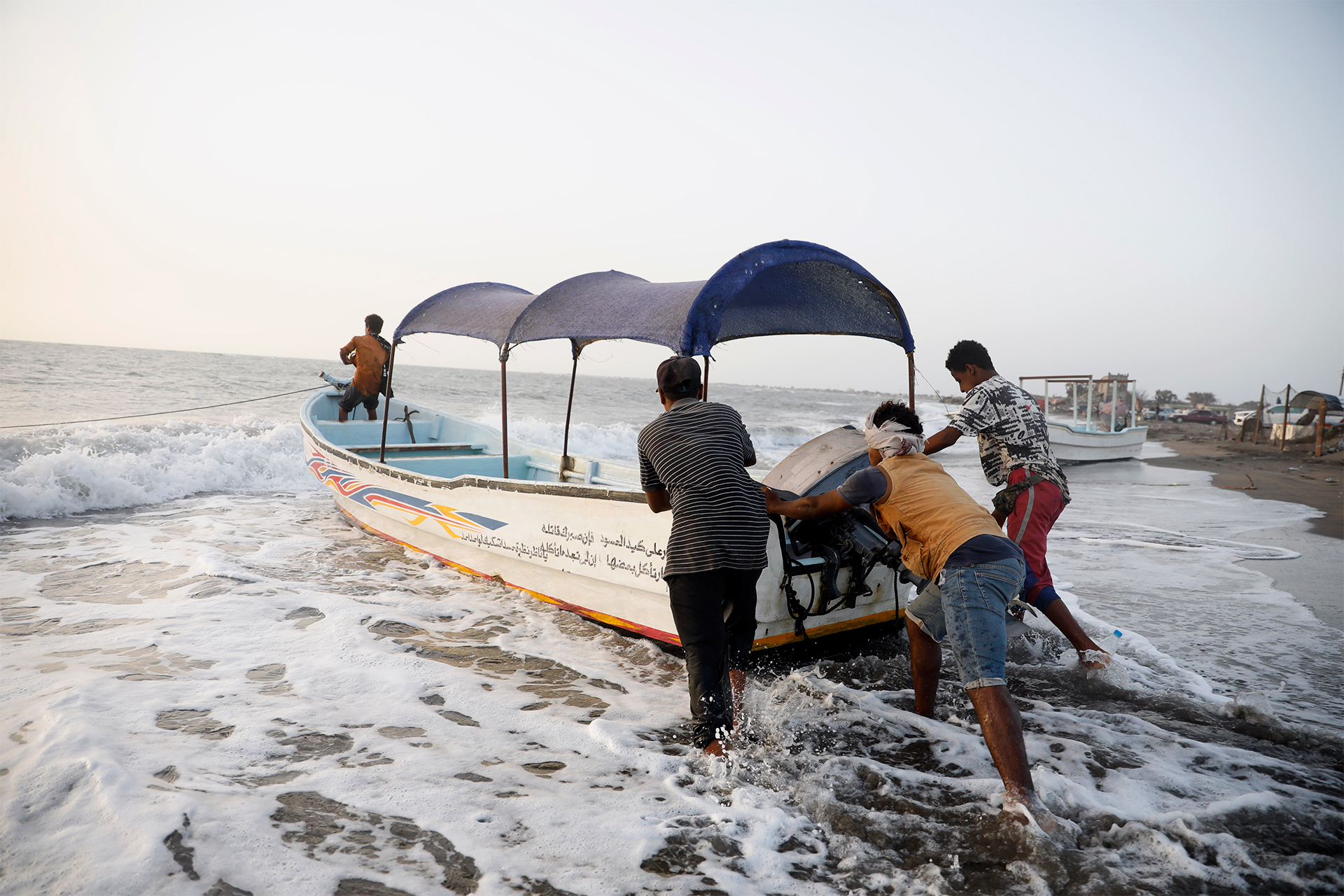SANA'A – Yemeni fishermen have stepped off a wooden boat to take them to the Red Sea city of Khawkha in the south of Hodeidah governorate, after months of enforced disappearance in Eritrea's prisons.
Despite the joy of returning, they felt oppressed and pained by what they said was "psychological and physical torture they endured during their detention inside Eritrea."
Hussein says Eritrean patrols attacked their boat in the middle of the sea and forcibly took them to the Eritrean island of Tarma, where they were imprisoned.
Al Jazeera Net contacted the commander of the Yemeni Coast Guard forces in the Red Sea sector, Brigadier General Abdul Jabbar Zahzouh, and asked him about the measures taken by the Coast Guard to prevent the detention of Yemeni fishermen by Eritrean patrols, and the role entrusted to them in protecting Yemenis and Yemeni territorial waters, but he did not comment in this regard.
Escape to the unknown
Fouad Doubla, a maritime security official in the city of al-Khawkha, said that Yemeni fishermen have become pursued and chased by Eritrean patrols and Houthi naval mines, and cannot fish in the north of Hodeidah city or near Bab al-Mandab, where the Red Sea has become a dangerous military zone.
Speaking to Al Jazeera Net, Doubla said that those released last Tuesday and arrived in the city of Khawkha amounted to 166 fishermen, including 115 fishermen who were detained on the island of Tarma, and 51 fishermen from the Eritrean Juhro area.
The security official confirmed that there are "about 100 Yemeni fishermen in Eritrean prisons who are subjected to torture, abuse and hard labour," he said.
The biggest tragedy suffered by fishermen was in September 2018, when 18 fishermen from the village of Al-Kadaha in the city of Al-Khawkha were killed after their boat was bombed from barges in the Red Sea.
Piracy and assault
Daoud Mashouli, director of the fish landing centre in al-Khawkha, said that what Yemeni fishermen are subjected to from Eritrean patrols is "illegal piracy and a blatant attack on Yemeni citizens, taking advantage of the state of war and internal conflict that Yemen is going through".
Masholi said in an interview with Al Jazeera Net that the Eritrean navy kidnaps Yemeni fishermen near the island of Zagr and the Great and Lesser Hanish archipelago, although it is an area in Yemeni territorial waters.
Regarding the ways to release the Yemeni fishermen, Mashouli said that this is done through Yemeni intermediaries who do business with Eritrea, and a mandate and demand from the families of the abductees, as well as through Abdullah al-Sari, the Yemeni ambassador in Asmara.
On December 15, 1995, Eritrea occupied the island of Grand Hanish, but international arbitration returned it to Yemen on November 1998, <>.
Silence and absence
"The Eritrean authorities' boldness to continuously attack Yemeni fishermen and kidnap them from the open sea and from within the territorial waters comes because there is no strong Yemeni government with its prestige and sovereignty to follow up on this violation and the continuous violations," said activist Mohammed Khadem Faraj.
Faraj – who also works in the export of fish – pointed out in an interview with Al Jazeera Net that the Eritrean navy patrols chase Yemeni fishermen and arrest them near the Yemeni islands and this is a serious violation of Yemeni sovereignty, and what we regret very much is the silence applied by the Yemeni government as if this matter does not concern it, which made the Eritrean Navy continue these violations.
"There are many Khawkha fishermen who are relatives who have been arrested, their boats and marine equipment confiscated, subjected to torture, where they were severely beaten with sticks, hard and cruel labour, and sometimes prevented from eating and drinking by the Eritrean authorities," Faraj said.

